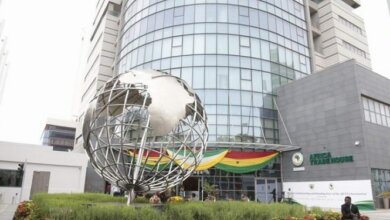Biden’s legacy on the line on his historic Angola visit — Sylvie Bello

As the U.S. invests in infrastructure growth, President Biden can heal deep-rooted scars, use his executive privilege to advance equity, and secure his place in history for posterity.
During his historic trip to the Amazon, President Joseph R. Biden declared, “We don’t have to choose between the environment and the economy.” This watershed moment to transcend false dichotomies offers a powerful blueprint for his visit to Angola—a chance to prove that we don’t have to choose between economic development, reparative justice, and refugee equity.
Biden’s December 2024 trip to Angola, the first by a U.S. president to Central Africa, is pivotal. Angola, a key member of the regional integration and economic growth initiative known as the Economic Community of Central African States (ECCAS), which includes Cameroon, Gabon, and the Democratic Republic of Congo (DRC), is commemorating 50 years of independence from oppressive Portuguese colonial rule. This milestone offers an unprecedented opportunity to address historical injustices while charting a path of mutual progress.
The centrepiece of Biden’s agenda is the $1 billion Lobito Corridor—a railway project linking landlocked resource-rich countries like the DRC to global markets via Angola’s Atlantic coast. While strategically positioned to compete with Chinese infrastructure dominance in Africa, this project carries a profound historical significance that cannot be overlooked.
The irony is stark: this railway traverses routes once used by Portuguese slave traders during the transatlantic slave trade. By transforming Angola’s infrastructure from a symbol of exploitation into a tool for justice and reconciliation, Biden can leave a lasting legacy.
A personal and collective mission
For over twenty years, the Cameroon American Council (CAC) has worked to amplify African and Black voices across the U.S. and Central Africa, recognizing the importance of addressing historical legacies of racial injustice and inequity. Representing 30 states and 300 media outlets with our African Immigrant Media Network, CAC’s advocacy has bridged African diaspora communities with cultural and policy engagement opportunities while amplifying African voices.
During National African Immigrant Heritage Month, our recent White House partnership in September 2024 demonstrated the administration’s commitment to engaging directly with African media representatives. This collaboration reflects a growing recognition of diaspora perspectives.

The 5 Rs framework: A roadmap for justice
Biden’s Angola visit offers a chance to implement meaningful policies guided by CAC’s 5 Rs Framework, achievable through executive action:
1. Remembrance: Visit Africa’s largest slave port in Luanda, Angola, to honour the millions of victims of the transatlantic slave trade that brought the first enslaved Africans to Hampton, Virginia, in 1619.
2. Reparations: Fulfil Biden’s 2020 campaign promise by establishing the HR40 Reparations Commission through an executive order, cementing the Biden-Harris administration’s legacy as a historic milestone in America’s pursuit of racial justice.
3. Revitalization: Commemorate the 50 years of independence of Lusophone African independence (“lusophone” refers to Portuguese-speaking African countries, including Angola, Cape Verde, Mozambique, Guinea-Bissau, and São Tomé and Príncipe) from Portuguese colonization. Biden’s visit, occurring on the eve of this significant milestone, presents a unique opportunity to engage U.S.-based diasporic communities through robust language access initiatives, cultural exchanges, and diaspora engagement programs that honour the rich histories of these nations.
4. Refugees: Expand immigration relief called Temporary Protected Status to include Angolans and other Central African nations facing instability, and grant Special Humanitarian Parole to Cameroonians currently fleeing violence and armed conflict.
5. Reconnection: Announce a White House roundtable with the President’s Advisory Council on African Diaspora Engagement in the U.S., focusing on economic opportunities, cultural exchange, and historic preservation for the Gullah-Geechee community, African American entrepreneurs and Angola community members to Central Africa.
Opportunities for policy leadership
Biden’s visit presents concrete opportunities to advance transformative policies:
- Launch the HR40 Reparations Commission to address systemic racial injustices.
- Expand immigration protections for Central African nationals, fostering equity and safety.
- Reframe infrastructure development as aligning social justice principles
- Strengthen diaspora partnerships and engagement
A shared history, a shared future
The historical connections between Angola and the Americas run deep. The first enslaved Africans who arrived in 1619 at Hampton, Virginia, were from Angola—a fact that underscores the deep historical ties between these lands. Their cultural legacy lives on in traditions like the Gullah-Geechee heritage and even words like “goober” (peanut), derived from Angola’s Kimbundu language, where “nguba” means “peanut”—a linguistic remnant of forced migration that survives in American culinary culture.
The Gullah-Geechee people of the Carolinas exemplify this connection; their very name is derived from “Gullah,” a term reflecting their Angolan ancestral roots.
Angola was a primary source of enslaved Africans, with millions forced across the Atlantic to the Americas. Today, towns named Angola across the U.S.—from Indiana to Louisiana—stand as silent memorials to our complex shared history.
President Biden, this is more than a diplomatic visit—it’s a chance to define your legacy. The Lobito Corridor can carry more than goods—it can transport values of remembrance, reparations, and revitalization. Let this Angola visit be remembered as the moment America chose justice, equity, and a commitment to our shared, complex history.
Author
Sylvie Ngassa Qwasinwi Bello is the founder of the Cameroon American Council, a 501(c)(3) founded in 2010 and based in Washington, DC. It is America’s leading national African immigrant advocacy organization. CAC’s mission is to build African communities’ capacity, relevance, and visibility at home and abroad. CAC’s national network reaches over 300,000 African immigrants across the United States.

Disclaimer: The views and opinions expressed in articles and content by our contributors are those of their’s and do not necessarily reflect the official policy or position of our publication. We make every effort to ensure that the information provided is accurate and up-to-date, while holding contributing authors solely responsible for their contributions.





